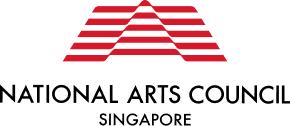The National Arts Council (NAC)’s Arts Resource Hub (ARH) aims to support arts Self-Employed Persons (SEPs) and freelance practitioners in Singapore to unlock new opportunities and grow meaningful careers for the long term. With financial planning as a prudent consideration, ARH aggregates useful information on CPF contributions, taxes and insurance for arts SEPs and freelancers.
MediSave
To ensure sufficient savings for healthcare needs especially during retirement years, it is important for Self-Employed Persons (SEPs) and freelancers to contribute regularly to MediSave.
CPF Board refers to “self-employed net income” as Net Trade Income (NTI). For individuals who earn an annual NTI of more than $6,000 (current as of 2019) from freelance work, you will need to contribute to MediSave. For more information on MediSave, click here.
Contribute-As-You-Earn (CAYE) Scheme
Since 1 January 2020, the Government has taken the lead to pilot the CAYE scheme, which encourages SEPs to save for their healthcare needs through small and regular contributions as and when SEPs earn a service payment. Government agencies that buy services directly from SEPs are required under the CPF Act to deduct the MediSave contribution from the service fee and transmit it to the SEP’s MediSave account. The amount of CAYE contribution to be deducted from the service fee would depend on the SEP’s CAYE contribution rate, age, and estimated NTI. For more information on CAYE, click here.
Other CPF accounts
It is not compulsory for SEPs to contribute monthly to their CPF Ordinary and Special/Retirement Accounts, other than MediSave contribution mentioned above. However, it is prudent to consider making voluntary contributions beyond MediSave. For more information, click here.
For individuals doing paid freelance work full-time or part-time, you are said to be a SEP receiving income from trade, business, vocation or profession. This is true whether you are self-employed without a registered entity or a sole proprietor or a partner with a registered entity. The income earned from freelance work will need to be declared to the Inland Revenue Authority of Singapore (IRAS). IRAS allows deductions such as for business expenses (subject to qualifying conditions), with only self-employed net income subjected to tax.
IRAS has created a detailed presentation to guide SEPs through the filing of taxes, along with a video which can be viewed here. For more information on filing taxes, please click here.
Other useful related websites and pages include Central Provident Fund Board (CPFB), IRAS and Institute for Financial Literacy.
The type of insurance SEPs and freelancers require will differ and here are some influencing factors to consider:
- The type of work you do;
- The type of assets you have e.g. art-making equipment of significant value and crucial to the creation of your work;
- The potential liability you may owe to a third party e.g. for property or borrowed assets.
In general, insurance undertaken is to protect assets or minimise liabilities. It will be best to seek advice from a professional insurer to ensure the scope and pay-out of coverage meets your needs. Also, read the fine print and ask questions of your insurer. For example:
a) What does this insurance plan not cover?
b) If I incur my loss overseas does this plan still cover me?
c) How are claims done?
d) What documents do I need to support my claims?
e) When can I get my claims after I submit all necessary documents?
f) Give me real-life cases where a person could not or did not get his/her claim.
Regardless of your age and career type, the common denominator of risk faced is the reality of falling sick and needing time to rest, which translates to the stopping of income. There are specific paid medical leave insurance plans designed to protect SEPs and freelancers from income loss due to illness or injury. With these plans, signing up as early as possible would be advisable.
Currently, there are two insurance plans on the market that are specifically aimed at supporting SEPs and freelancers to continue to be paid if you are unable to work for an extended period due to illness or injury. While they have a similar intent, you might prefer one to the other, depending on your unique needs and preferences for premium payment.
- Freelancer Earnings Protection (FLEP) Insurance Plan by Gigacover
Freelancer Earnings Protection (FLEP) is a flexible insurance plan for freelancers that can be bought weekly, monthly or yearly. You can change or stop coverage anytime without penalties. More on this insurance plan can be found here.
- Prolonged Medical Insurance Plan by NTUC Income
This is a health insurance plan that helps to relieve you financially if you are hospitalised or on hospitalisation or medical leave for a prolonged period as a result of illness or injury sustained during the period of your insurance coverage. This is a yearly renewable policy. More on this insurance plan can be found here.
Other useful related resources include Chapter 5 on insurance from the Advocates for the Arts – A Legal Handbook for the Creative Industries developed by the Law Society Pro Bono Services.


